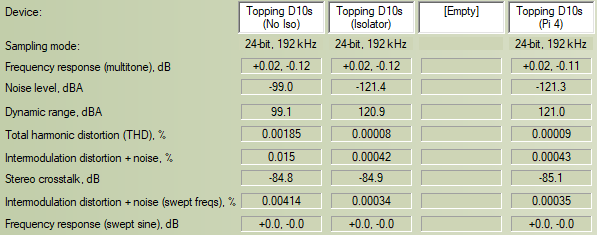Be my guest.
Here's description, taken from an old ESS white paper, of how jitter sounds:
"The noise that jitter induces is not easily described: it is not a harmonic distortion
but is a noise near the tone of the music that varies with the music: it is a noise that
surrounds each frequency present in the audio signal and is proportional to it.
Jitter noise is therefore subtle and will not be heard in the silence between audio
programs. Experienced listeners will perceive it as a lack of clarity in the sound
field or as a faint noise that accompanies the otherwise well defined quieter
elements of the audio program."
As with any other type of distortion its audibility is probably both system, programme and listener dependent.
The following website has some simulated jitter test tracks:
What does jitter ACTUALLY sound like?
There are seven versions of each sample. Three have periodic jitter, three have random jitter, and one is the original - untouched. In the samples we have 2µs (microseconds), 4µs, 8µs, 16µs RMS jitter. It is unlikely in the real world for a digital-to-analog converter to have a jitter higher than 2µs RMS. I threw in the 4µs, 8µs, and 16µs samples to see what some extreme cases sound like. As you scroll down you can listen to them and make your best guess of which is which. Then you can click the sample's title (i.e. 1kHz v1) to see if your guesses are right.
Before you move on, here is something to keep in mind. The clock interval of a 44.1 kHz signal is 22.7 µs, meaning, there is a sample every 22.7 µs. Jitter is expressed in RMS microseconds. So when we say there is a 2µs RMS jitter, it means the clock was, on average, off by 2µs.
http://www.sereneaudio.com/blog/what-does-jitter-sound-like#listen


